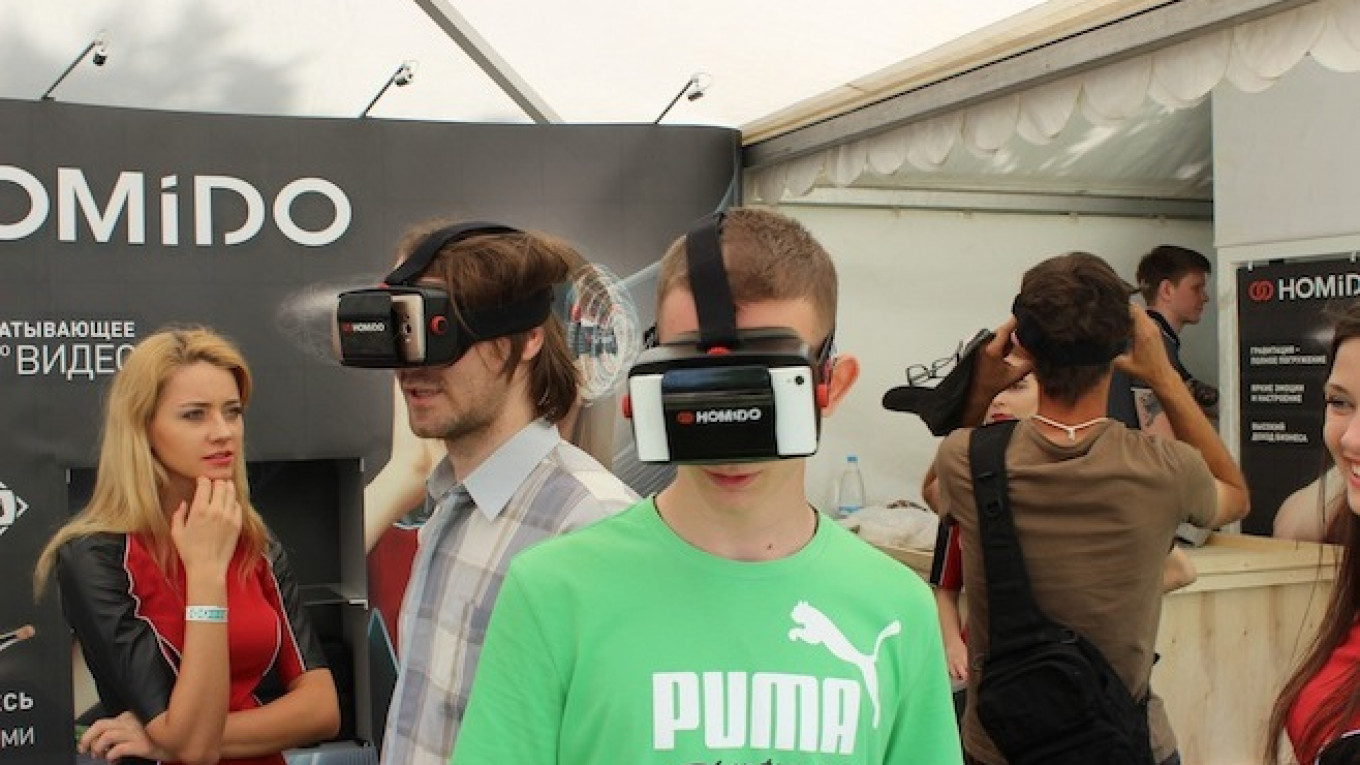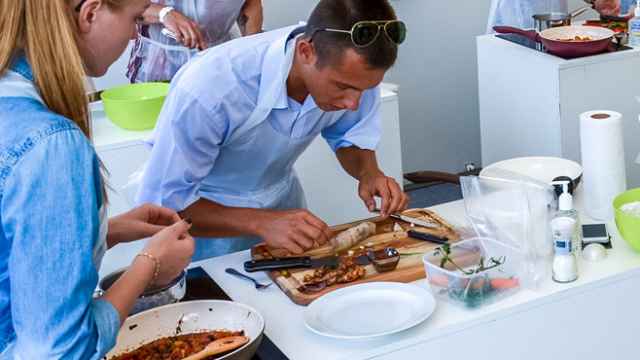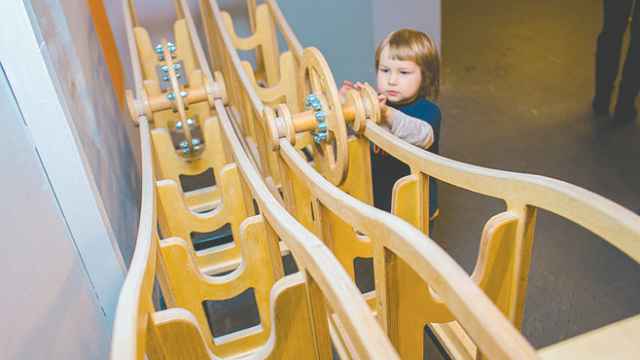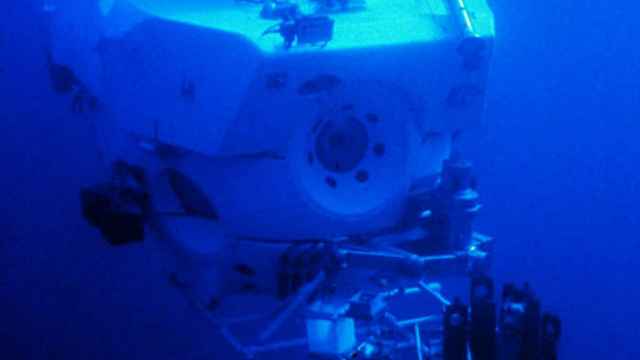The theme of the fifth annual Geek Picnic, which took place in Moscow's Park Krasnaya Presnya over the weekend, was Man and Machine, and it was the man who referred to himself as a "real life cyborg" who attracted much of the attention on the festival's opening day.
Nigel Ackland, who lost his arm in a metal smelting incident in 2006, was the first recipient of the world's most advanced bionic hand, the bebionic3. Since receiving the hand, Ackland has been a kind of evangelist for the technology and the need for people to become more comfortable around technological innovations — a role he played this weekend in Moscow.
"Geek Picnic is really important as it is aimed at technology that will change the world," Ackland said at the opening of the event. "The fact that we're here discussing the applications of cyborg technology. I think I'm bringing the human side to technology. And to explain because I wear this, I'm not going to try to take over the world. I'm not Terminator."
While Ackland was showing off his bionic hand, artist Chistian Ristow, was demonstrating his own vision of a robotic limb. Visitors to the event were invited to operate Ristow's behemoth art installation Hand of Man (Robohand), which can pick up and crush cars. "I built the hand because it makes you feel like a superhero. It gives you power your body wouldn't normally have. And I think that's fun," Ristow said.
Fun was an important theme of the event. Manufacturers of 3D video games and simulators brought a number of new devices for visitors to try out. Alexander, 17, an engineering student, had the opportunity to try a new pair of 3D goggles made by Homido, a French game maker. The goggles work with a smartphone and give the user a virtual reality experience of flying over a city or through outer space. Alexander said the event was a good opportunity to get a hands-on experience with the latest technologies.
"I'm having a good time at Geek Picnic. Technology is important to me because I want to be an engineer of robotics," Alexander said.
Other exhibits at the event included a competition between drones, robots that could recite poetry, and lectures by experts in the fields of bio-chemistry, molecular science, computer programming, physics and mathematics on topics ranging from the applications of cybernetic augmentation, to the ethics of artificial intelligence.
This year's event, sponsored by PayPal, also featured Russia's first cyborg conference in which participants discussed the relationship between people and machines and the ethics involved.
A Message from The Moscow Times:
Dear readers,
We are facing unprecedented challenges. Russia's Prosecutor General's Office has designated The Moscow Times as an "undesirable" organization, criminalizing our work and putting our staff at risk of prosecution. This follows our earlier unjust labeling as a "foreign agent."
These actions are direct attempts to silence independent journalism in Russia. The authorities claim our work "discredits the decisions of the Russian leadership." We see things differently: we strive to provide accurate, unbiased reporting on Russia.
We, the journalists of The Moscow Times, refuse to be silenced. But to continue our work, we need your help.
Your support, no matter how small, makes a world of difference. If you can, please support us monthly starting from just $2. It's quick to set up, and every contribution makes a significant impact.
By supporting The Moscow Times, you're defending open, independent journalism in the face of repression. Thank you for standing with us.
Remind me later.






